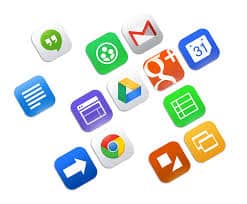Smart money management used to be tedious at best and almost impossible at worst. For those of us who juggle multiple credit cards, store accounts, loans, checking accounts, savings accounts, bills, and then some, it can be hard to keep track of everything without resorting to complex spreadsheets. However, with the advent of smartphone apps, you’ll be well on your way to adeptly tracking your finances with ease.

Read on to learn more about why these apps are an invaluable part of your money management toolkit.
1. Bill Pay Reminders
One of the most infuriating things about bills is that they all fall at different times of the month. While your rent might be due on the first, you might also have a SoFi credit card bill that will likely fall in the middle of the month, plus another one later in the month if you have multiple credit cards, and then car insurance is on a different day entirely… it can be hard to keep track of everything. If you’ve had to take out a personal loan, for example, it’s important to pay it off on time to avoid penalties. Similarly, if you are looking at what is a balance transfer to move that credit card bill to a lower interest rate, you will need to remember to pay the new card on the right day too.
A personal finance app can set bill pay reminders so you’ll get a notification when a bill is due. An app like Mint or You Need a Budget will alert you not only when a bill is due but also when you’re about to hit a budget limit so you don’t go overboard on lattes for the month.
2. Calculate Your Net Worth
Think the concept of “net worth” is just for celebrities and multimillionaires? Think again. Your “net worth” is simply a question of knowing how much money you have and how much money you owe. Consider an app like the one available from LearnVest not only to calculate your current net worth but also to track your everyday spending habits.
3. Set Financial Goals
Financial goals can be anything from consulting with a bankruptcy attorney in Phoenix and getting out of credit card debt, to carefully saving a deposit and buying a home. Consider an app like Level Money to help you plan ahead for monthly essentials, from rent to grocery expenses, and then set a larger financial goal. Anything left after you’ve covered the essentials is your personal spending money, or your “spendable.” Instead of showing you your bank balance, this app will show you how much money you can afford to spend on non-essentials, like coffee or takeout.
Track Your Money in Real Time
Even if you’re not interested in using an app as a financial advising tool, you can still benefit from their secure tracking features. Personal finance apps are a smart, secure way to track your checking and savings accounts, as well as credit card activity and loan repayments. Not to worry, though; these apps are completely secure. In fact, they won’t even see your account numbers or remember your PIN. Their purpose is simply to follow your activity and pull information to help you figure out how you spend money and where you should work to build better habits.